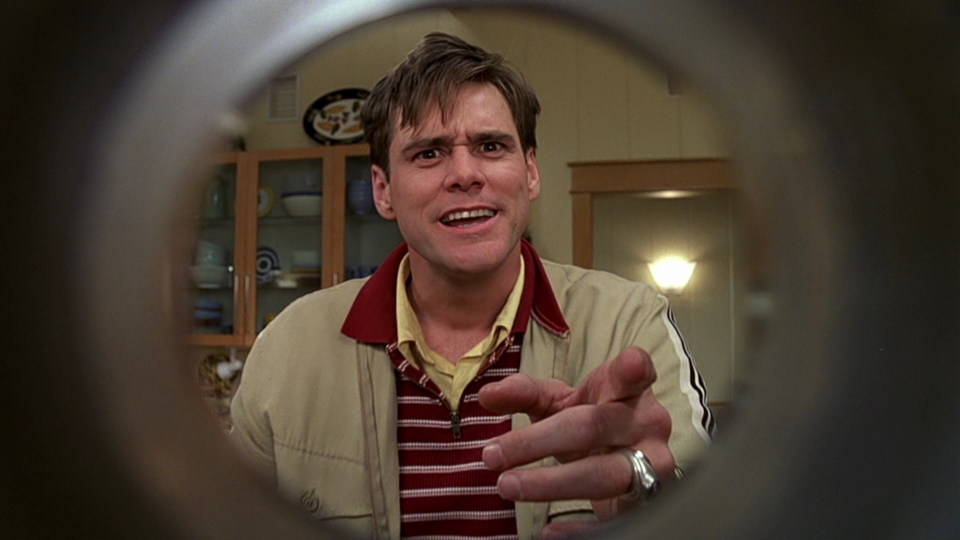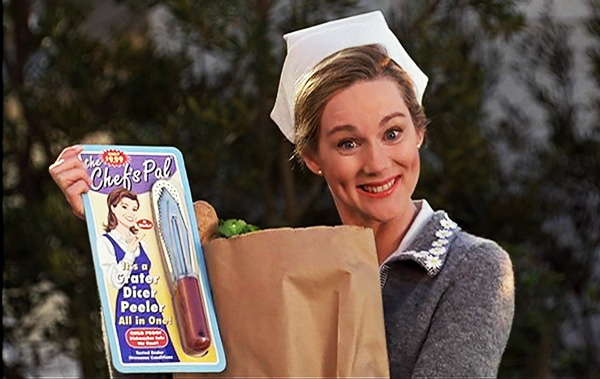5. It presents a treatise on viewers’ abilities to confront their biggest fears

Perhaps a cliched theme, sure, but Truman’s final boat trip, on the open water, is inspiring in its courage. What has eclipsed his fear of the water is a realization that he would rather die than continue to live this sheltered, fallacious life. Knowing that the only way to reclaim his existence was to confront his fear of the water, he knew that there was no other choice.
Therefore, the fear left. Or, if it did not leave, Truman was finally able to push it aside in pursuit of a higher goal. No doubt many other films have articulated this theme expertly before.
Not many, though, manage to build such a delicious sense of irony in with the overarching sense of triumph, though. The fear that Truman is overcoming was placed there to keep him from ever breaking out of his televised home. Christof, the creator(!), supplied Truman with a fear that would keep him from the truth.
So when he finally faces his fear, he is also finally finding out the truth. The poetry of the moment is gorgeous: only by breaking through the dread and the panic can one actually find the truth one has been seeking. It’s a powerful and empowering message.
6. It touches on the power of the arts

Those same obsessive viewers mentioned earlier also help to illuminate the power of fiction and art to captivate us and change us. The viewers here gradually become more and more engaged in Truman’s struggle.
With just a few minutes of screen time, Weir is able to suggest that many people lived simply to watch Truman. (“We find that some viewers leave him on all night for comfort,” is what Christof says at one point.) This goes beyond mere entertainment value; it transcends common passing interest; this devotion to Truman and the “reality” he lives becomes a part of their lives.
It is no accident that the final scenes of the movie feature Truman Show viewers, not Truman himself. They, like the audience watching the film, are the ones that will actually learn something from what they have seen. They are the ones that will now take a closer look at their own lives and look for ways in which they can improve themselves or achieve their goals. The movie both demonstrates and wields that transformative power, as the best art does.
7. It demonstrates a less cheesy, more realistic version of “love conquering all”

To suggest that the romance in Truman Show is more realistic when it all takes place in a fabricated world seems counter-intuitive. But, though there are definitely some sentimental moments in the relationship between Truman and Sylvia (originally Lauren), what ultimately emerges is a more genuine portrait of the way love works within us.
Their short time together is dominated by some cheesy moments, to be sure, as when they secretly run down to the beach, or when Truman pretends to order pizza with plankton on it, or when they share their first kiss. But it’s the way that their love grows when they are apart that feels more pragmatic. Sylvia, like so many other viewers, gets to watch Truman every day and every moment and, through that unprecedented access to his life and decisions, sees her admiration and love for him flourish.
Likewise, Truman dwells constantly upon his lost love (especially since she was taken in such an odd and disquieting way), even putting together a collage of magazine pictures in an attempt to recreate her face. The audience can see the way their relationship develops, even as they are kept apart.
At the conclusion of the film, the “lovebirds” are not officially reunited. The assumption is that they eventually will be but viewers do not even know where Sylvia is in relation to Truman when the credits roll. However, the feelings he had for her helped fuel his escape from his made-up world. The love he had conquered all, even if the audience never knows what becomes of either one of them.
They don’t need to because the desire inside of him–his intense desire to see her again and know who she really is and if she loves him as he loves her after all these years–is what got him out of his prison. Regardless of how they greet each other or if it’s awkward or even if they end up married, Truman achieved what he did because of what they shared. That is a feeling that many people can relate to.
8. It urges viewers to scrutinize the motives of those around them

On the sly, The Truman Show has always been the cause of viewers questioning the truth of their environment. As its world is so fully realized, it is not uncommon for people to look about furtively when the movie concludes.
One interesting byproduct of that wariness is providing viewers with the impetus to examine the motives of everyone around them. Are friends treating them a certain way because they want something? Are family members trying to get a particular reaction from them as opposed to dealing honestly? These questions haunt the film and, so it follows, the audience.
It might seem silly to suggest that the movie invites healthy skepticism (some would more derisively call it paranoia), the character of Truman lives a traditional, productive life with good friends and a supportive, perky wife. He could continue living and enjoy his charmed existence with nary a pratfall or obstacle to stand in his way (other than during TV sweeps’ periods) and have a beautiful life, much like many members of the audience who could sit back and take no risks and be perfectly happy.
Or they could figure out what is missing, look for those parts of their lives (and, more importantly, people in their lives) that are not all that they could or should be. Truman realized that his best friend was no more than an actor, his wife no more than a puppet being encouraged to get pregnant, and the various people populating his home city no more than employees seeking paychecks.
Could those around us be hiding their true selves? The answer, undoubtedly, is yes. And though the initial reaction of viewers may be to sarcastically state that now they distrust everyone, a secondary reaction may lead to true examination and soul-searching. The Truman Show is not cultivating suspicion by any means; rather, it is igniting a more circumspect attitude toward one’s lifestyle and attitude.